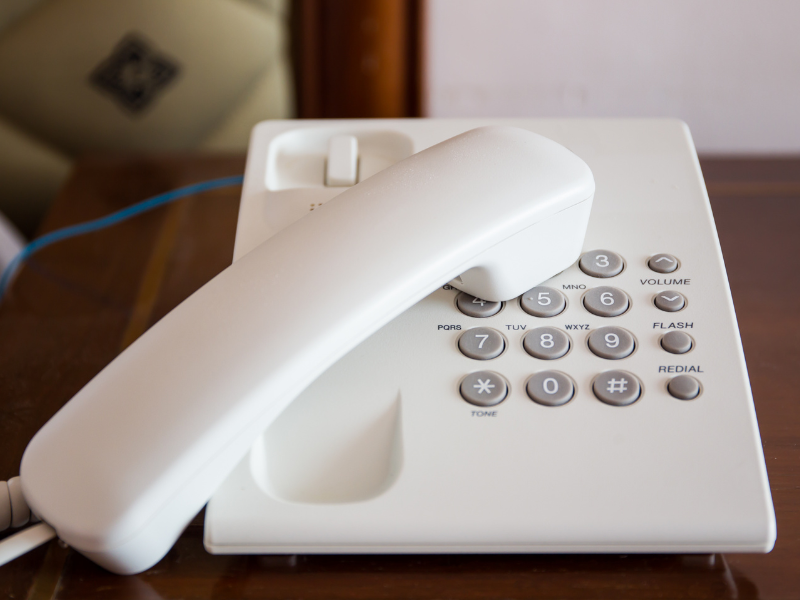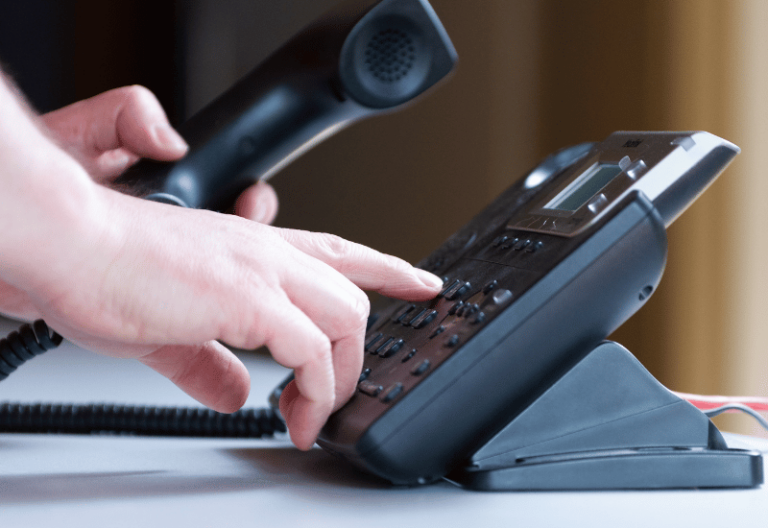Telephone lines, particularly the traditional ones, lack the security and encryption features necessary to ensure the privacy of voice communications. Calls are susceptible to wiretapping, potentially risking the confidentiality of information shared.
Secure phone lines have brought forward a solution that retains the use of landlines while elevating the level of voice call security. Here’s what you need to know about setting up secure phone lines and why they are a must for businesses looking to safeguard calls without transitioning to an entirely different communication system.
Table of Contents
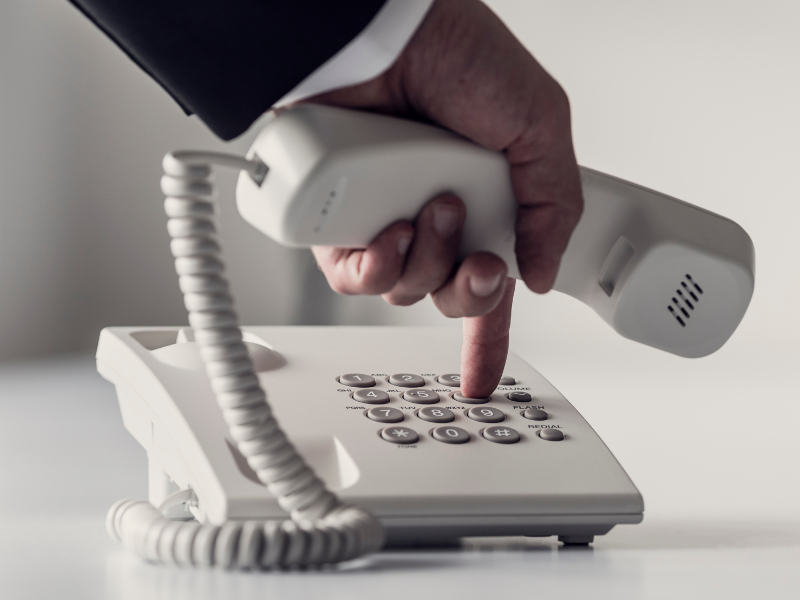
What Is a Secure Phone Line?
A secure phone line employs modern security measures such as end-to-end encryption technology to safeguard voice calls against eavesdropping and other interceptions that aim to exploit the exposed data.
It typically involves modifying the standard business phone system setup, such as using an analog telephone adapter (ATA) to convert analog landline signals to digital signals. Securing a phone line also implies getting a VoIP provider since you will essentially be making and receiving calls over the Internet.
And while upgrading the hardware isn’t always necessary, it’s best to have a phone that supports VoIP technology to ensure optimal call quality. Moreover, switching from a corded telephone to a virtual phone system can add another security layer, keeping voice calls safe from potential eavesdropping and wiretapping attempts.
Importance of a Secure Phone Line
Businesses must prioritize data security to protect and maintain customer loyalty and trust. With a secure phone line, users can prevent phone tapping or Man-in-the-Middle (MITM) attacks on the call, whereas an unauthorized person intercepts your calls and messages to request something specific (scam) as part of their attack.
A lack of a secure phone line with encryption technology can expose your company to various risks, such as data theft and financial losses. That’s why implementing end-to-end encryption and authentication methods for your phone line is crucial to establishing a secure communication environment.
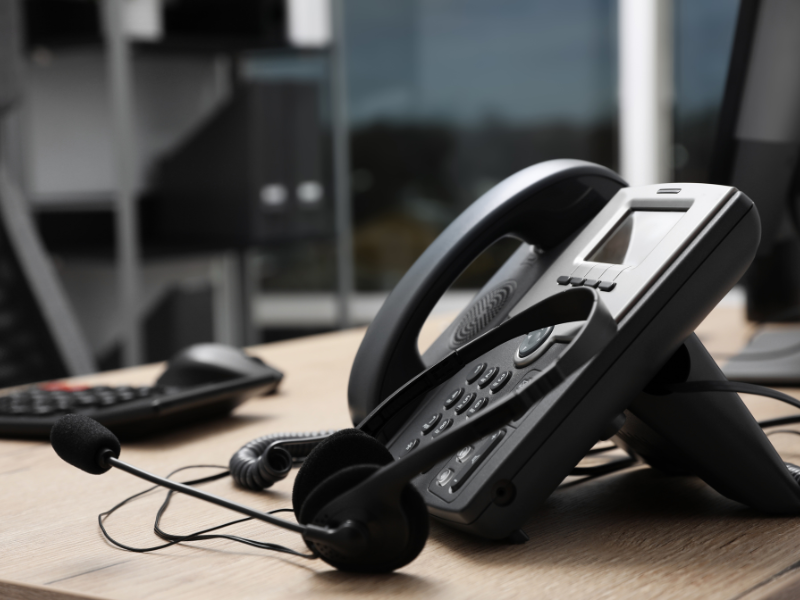
How to Secure a Phone Line
Secure phone lines require using a device with a voice encryption system and key management. The first generation of secure phones was the Secure Telephone Unit (STU) followed by Secure Terminal Equipment (STE) and Secure Communications Interoperability Protocol (SCIP).
To secure a phone line, you can consider apps that provide encrypted communications. Another option would be using a VoIP service, which offers end-to-end encryption for voice data.
A VoIP provider can even establish secure phone line connections without a landline, offering more flexibility and convenience. It will work as long as you have a computer or any mobile device (e.g., phone, tablet) that can connect to the Internet.
Top Phone Security Threats to Watch Out For
An insecure phone line puts your privacy and security at risk. It enables cybercriminals to intercept calls and voice messages without you knowing, making it easier for them to access sensitive information and exploit them for their own gain.
The list below highlights the most common threats:
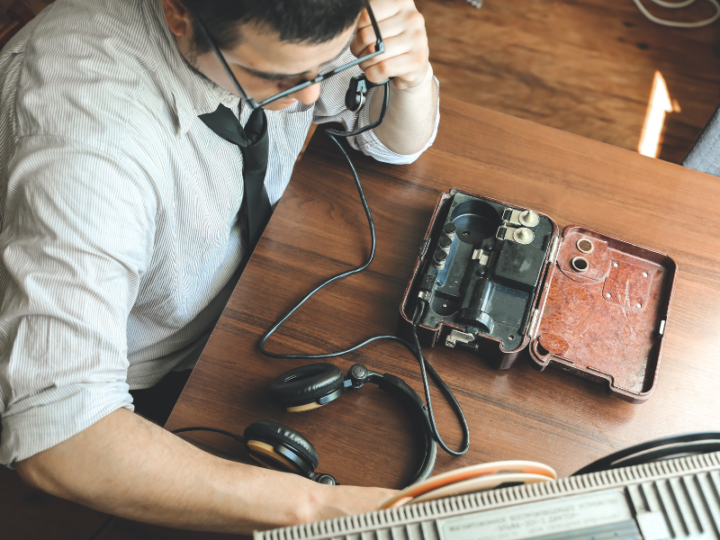
Phone tapping
Also called man-in-the-middle (MITM) attacks, phone tapping is one of the oldest scams in which the attacker eavesdrops on two people communicating. It involves using special equipment, such as an induction coil or a beige box, to tap a phone line. The attacker can hijack your calls and messages to get the information needed to scam you.
Phishing attack
Fraudulent messages can fool the person on the other line into divulging their passwords and credit card details. Moreover, viruses can corrupt or delete data when attackers disguise themselves as legitimate apps.
Data breach
Unencrypted phone lines can help unauthorized users request and gain access to sensitive data such as PHI. Any information they get can be transferred to remote servers and used for malicious acts.
Protecting Privacy and Sensitive Information
If the hacker has your account phone number, you could be at risk of identity theft and fraud. Before communicating with any device, make sure its line is secure. Both personal and business-related information stored on your phones can easily fall into the wrong hands without proper encryption.
Thus, to ensure the privacy of calls, it is crucial to implement authentication measures by using unique passwords and codes that restrict third-party access. You can also prevent eavesdropping or spoofing attacks by encrypting the communication channels with strong encryption protocols such as SSL or TLS.
Why Secure Phone Lines Are Crucial for Businesses
Compromised calls can harm businesses in several ways, including financial loss, data breach, and loss of customer trust. Aside from improving data security, secure phone lines can cater to businesses with modern needs. It enables companies to operate remotely, with multiple staff working from different locations instead of physical offices.
Secure phone lines promote reliable and safe communications, especially for businesses that conduct important and confidential transactions over the phone.



